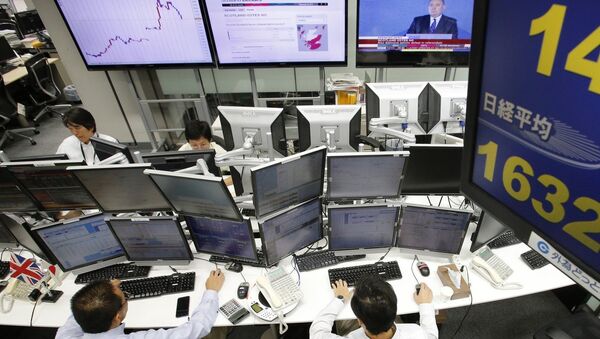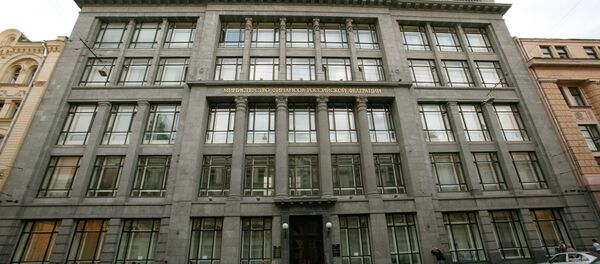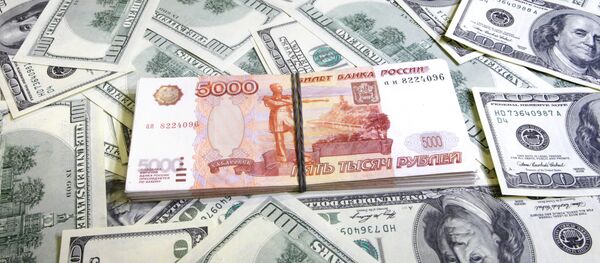Investors have been cautious in Asia-Pacific today as the spillovers of Russia’s financial turmoil have reached Hong Kong, causing a slight decline in the city’s stocks. Hong Kong’s Hang Seng index has lost 0.32% in the morning-to-midday trade.
"The combination of the ruble crisis and poor liquidity broadly resulted in a period of total dysfunction across global FX and rate markets," Citi analysts say, according to the Rakyat Post report.
The MSCI Asia Pacific Index rose 0.1% in Tokyo as investors anticipate the US Fed to announce the schedule for further monetary tightening, which might now come sooner than previously expected on optimistic US economic data. A higher interest rate in the US will strengthen the dollar, effectively driving the yen down, boosting Japan’s exports.
"Focus now switches to the FOMC (Federal Open Market Committee) meeting, which has been pinned as a pivotal one," Stan Shamu of IG Ltd. in Melbourne suggests, as quoted by Bloomberg. "The challenge will be how to proceed given the backdrop of turmoil in the rest of the world."
Russia’s FX crisis, gaining momentum earlier this week, prompted investors to sell-off in Moscow, triggering also pullouts from other emerging markets as risks arise along with market volatility. Russia might become an epicenter of global turmoil in case the nation’s Central bank fails to deliver a clear and efficient anti-crisis program, anticipated tomorrow. Russia’s ruble traded at 72.2 per dollar and 85 per euro early Wednesday, while the official FX rate is substantially lower – at 61.15 ruble per dollar and 76.15 per euro.
The dollar has been overvalued in the current economic conditions, as indicated by Wall Street, also suffering some collateral damage from the ruble’s struggle late Tuesday. The Dow Jones ended 0.65% lower, S&P 500 closed 0.85% down and NASDAQ lost 1.24%. The dollar slid against the euro to $1.2510 per 1 EUR.
Threat of inflation might become a reality in the US as well, as cheaper fuel keeps US inflation below the 2% target; an earlier than expected Fed interest hike would only add to this concern. Meanwhile, yields on British, German and Japanese sovereign bonds sank to record lows, signaling lack of market opportunity in these markets. US and Australian yields hit their lowest since 2012 as turmoil continues to spread throughout emerging markets, with investors seeing America, Japan, Europe and Australia as safe havens for their accumulated capital.





